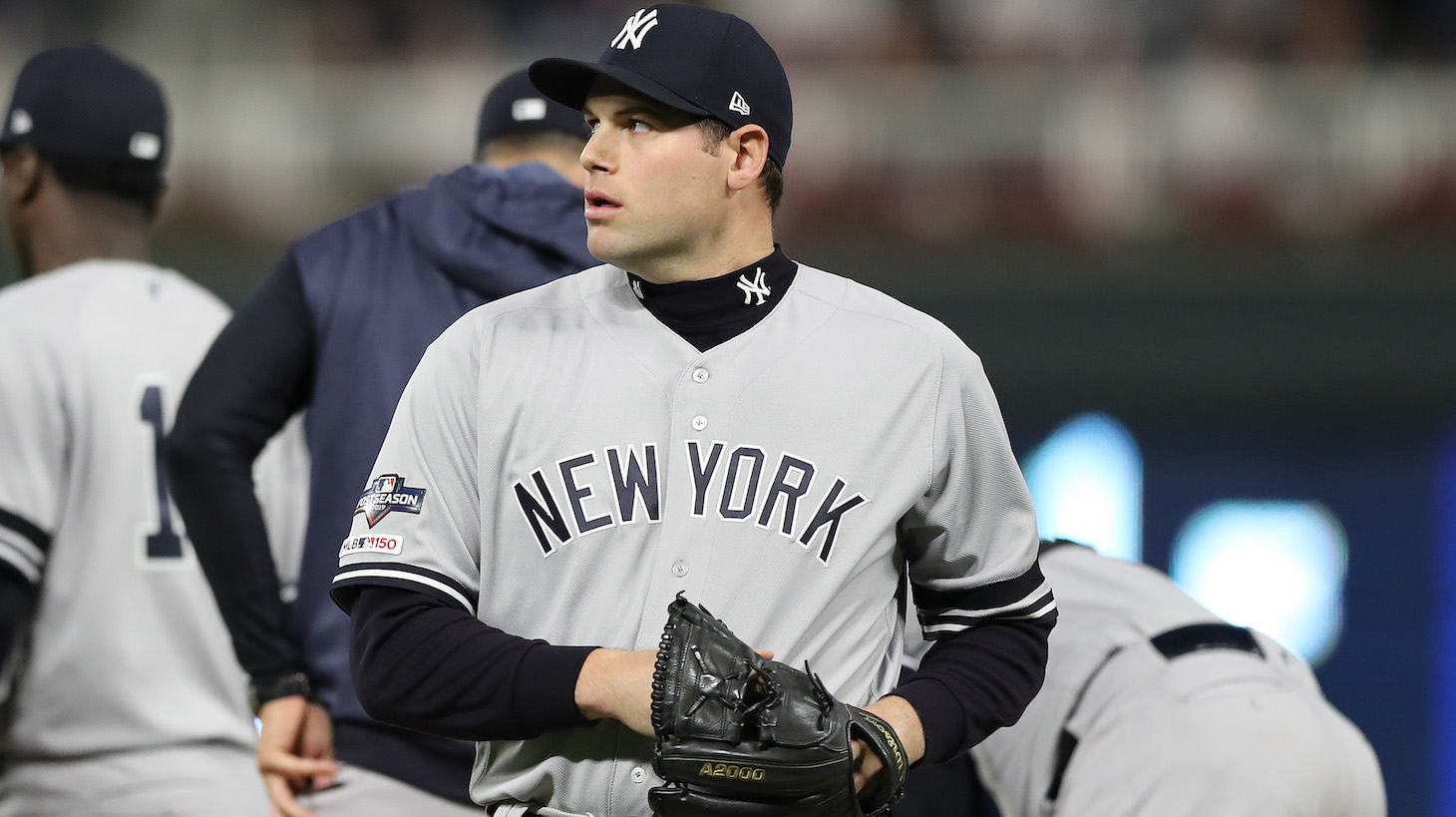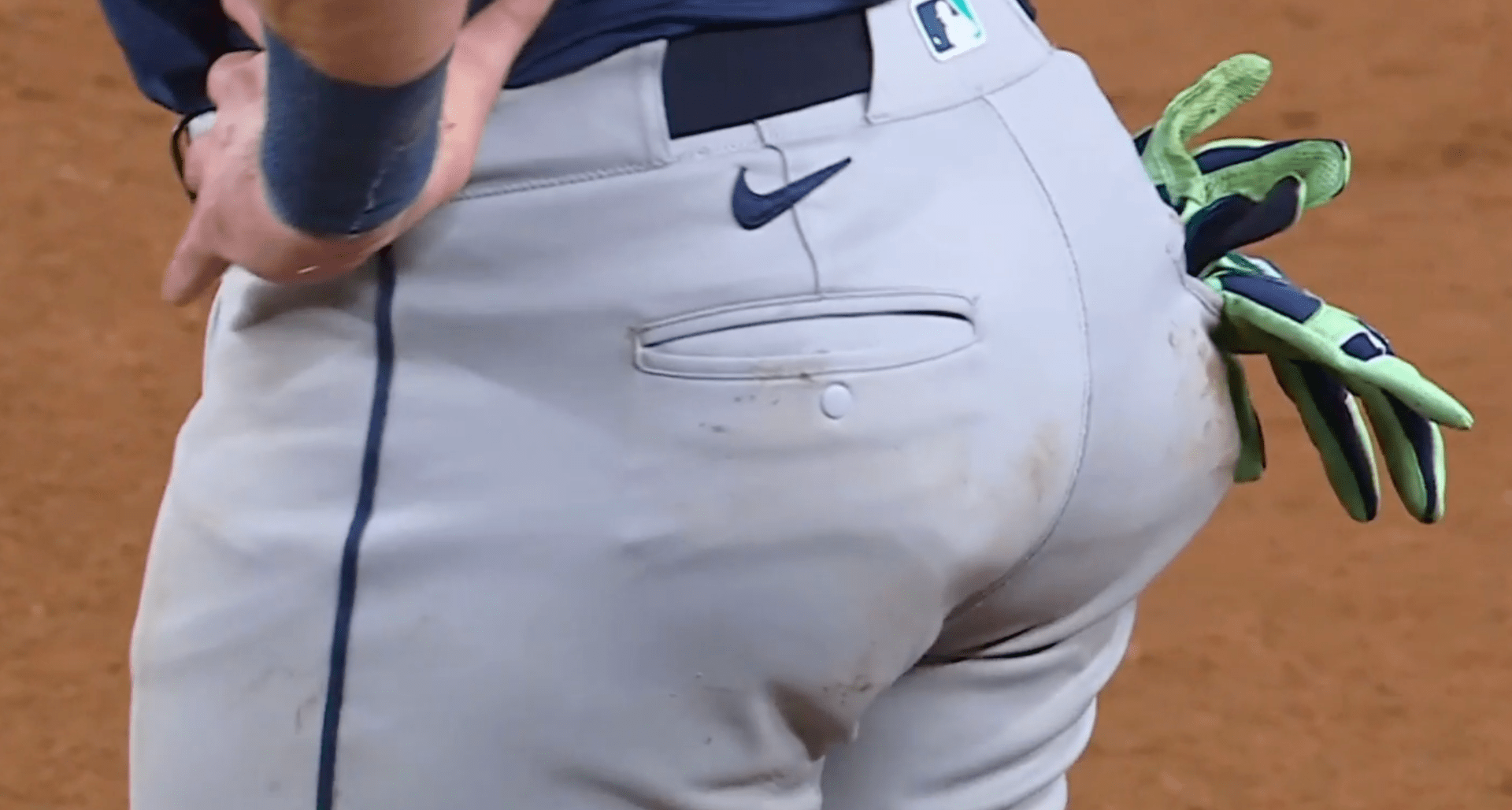The folks who run baseball would prefer you call it a luxury tax, as if spending money on talented ballplayers to win games were a luxury instead of (ostensibly) the whole point of owning a team in the sport. Even better, they'd like you to call it the Competitive Balance Tax, its official name, as if its purpose were to redistribute money to penurious owners in order for them to be able to afford qualified employees of their own, instead of the reality of them just pocketing the payouts. But call it a salary cap, even if it's a soft one. Because there's sort of a collective belief/collusion-y thing in play here: When owners treat the tax threshold like it's a cap, that makes it a cap.
The Yankees—the Yankees! The richest, most profitable ballclub ever to walk god's green earth!—are treating it like a cap. On Monday, New York shipped reliever Adam Ottavino to archrival Boston, in exchange for nothing. To sweeten the deal, the Yankees threw in a prospect, and $850,000. So what, exactly, are the Red Sox doing for New York here? Taking Ottavino's salary, about $8 million, off the Yankees' books. This is a pure salary dump. And when it's the Yankees—the goddamned Yankees!—dumping salary, and being incentivized to do so, and being applauded by some section of their fanbase for obtaining that mythical demiurge of "financial flexibility," that's a sure sign the system is working as intended by the people who wanted it installed in the first place.
Ottavino had a rough mini-2020, though it was a strange, disjointed season and he was lights-out the year before. He's an obvious bounce-back candidate, and would've had a meaty role in this year's Yankees pen. Boston, obviously, thinks he's still good, or they wouldn't have acquired him in an exceedingly rare Yankees/Sox trade. "[I]f we're not willing to do something that helps us," Red Sox chief baseball officer Chaim Bloom said, "because it also helps them ... well, then, we're just playing scared, and we're not going to play scared."
It helps the Yankees by getting them about $4 million underneath the luxury tax threshold. They'll presumably spend that to address some still-glaring needs, like a (cheap) lefty bat or a (cheap) bullpen piece. That's "financial flexibility," and doesn't it just get you psyched up for the season?
The luxury tax was first introduced to baseball in the 1997 Collective Bargaining Agreement (for which MLB's chief negotiator was Randy Levine, now president of the Yankees), the first since the strike, and best I can tell, the biggest concessions to the players in exchange were minimum-salary raises and increased contributions to players' pensions. The system as we know it, with increasing penalties for repeat offenders, was instituted in 2002, and since then the Yankees have run up $348 million in tax payments. That number seems big but is relative chump change for an organization that brings in nearly $700 million in revenue in a normal year, a figure which doesn't even include its moneymaking TV channel.
In fact, the Yankees routinely have the lowest payroll spending in MLB as a percentage of revenue. That's the thing here: New York could easily afford this if they chose, but they choose not to. Keeping Adam Ottavino and his salary would have had the Yankees about $5 million over the $210 million luxury tax threshold, and as three-time offenders would have seen them pay a bill of 50 cents on the dollar over the soft cap. If you buy the Yankees' proffered logic that this onerous tax must be avoided at all costs and is the sole reason to shed payroll, you must then also accept that the Yankees parted ways with a valuable bullpen piece over the matter of a $2.5 million penalty. Much more believable is that Hal Steinbrenner chose to save $11.5 million—Ottavino plus the tax—and revel in an excuse for not spending more, and is willing for the team to be slightly worse for it. Is that an understandable financial calculus? Maybe. Can it be spun as anything other than the Yankees—the motherfucking Yankees!—putting profits ahead of wins plus slightly-smaller-but-still-enormous profits? Nah.
This is different in degree but not in kind from what most MLB teams are doing, as owners have built a sport where you can be favorites by simply not making your team markedly worse, because so many others willingly are. Still, it's both jarring and telling to see teams like the Yankees and Red Sox self-impose financial restrictions, previously assumed to be the bailiwick of beleaguered front offices for teams like the Rays and Pirates. The competitive balance tax is outwardly designed to serve the small-budget teams, and it does, in the form of monetary rewards for not spending money on players. But it also provides the bigger-budget teams a welcome and convenient excuse for, again, not spending money on players. (Tom Ricketts, the obscenely wealthy chairman of the obscenely wealthy Cubs, has basically admitted they use it as a cap.) It is, at its heart and at its end and was only ever meant to be, a mechanism for the suppression of wages. That's what a salary cap does.
GM Brian Cashman has stated publicly that the Yankees will have baseball's highest payroll in 2021, and has demonstrated that he has a mandate to keep the Yankees' payroll under the luxury tax threshold. You do the math.







